|
Books Should Be Free Loyal Books Free Public Domain Audiobooks & eBook Downloads |
|
|
Books Should Be Free Loyal Books Free Public Domain Audiobooks & eBook Downloads |
|
Books on Languages |
|---|
|
Book type:
Sort by:
View by:
|
By: Alexander I. Kuprin (1870-1938) | |
|---|---|
 Yama: the pit
Yama: the pit
| |
By: Alexander Pushkin (1799-1837) | |
|---|---|
 Daughter of the Commandant
Daughter of the Commandant
"The Daughter of the Commandant" (better known as "The Captain's Daughter") is a historical novel by the Russian writer Alexander Pushkin, and is considered to be his finest prose work. The novel is a romanticized account of Pugachev's Rebellion in 1773-1774. The 17-year-old Pyotr Andreyich is sent by his father to military service in a remote Russian outpost, where he leans honor and love while being caught up in a violent uprising of tribal groups against the imperial government. | |
By: Alexander Stewart (1764-1821) | |
|---|---|
 Elements of Gaelic Grammar
Elements of Gaelic Grammar
| |
By: Alfred Ayres (1826-1902) | |
|---|---|
 The Verbalist
The Verbalist
Ayres arranges usage problems alphabetically and treats certain areas in greater detail as he sees fit. For example, his first entry is A-AN (articles). His second is ABILITY-CAPACITY, in which he distinguishes between the meanings. The alphabetical arrangement continues through to YOURS. (Introduction by Bill Boerst) | |
By: Alfred John Church (1829-1912) | |
|---|---|
 Stories from the Greek Tragedians
Stories from the Greek Tragedians
| |
 The Story of the Odyssey
The Story of the Odyssey
| |
By: Alfred M. (Alfred Marston) Tozzer (1877-1954) | |
|---|---|
 Animal Figures in the Maya Codices
Animal Figures in the Maya Codices
| |
By: Ameen Fares Rihani (1876-1940) | |
|---|---|
 The Book of Khalid
The Book of Khalid
| |
By: André Dacier (1651-1722) | |
|---|---|
 The Preface to Aristotle's Art of Poetry
The Preface to Aristotle's Art of Poetry
| |
By: Andrew J. Blackbird (1810-) | |
|---|---|
 History of the Ottawa and Chippewa Indians of Michigan A Grammar of Their Language, and Personal and Family History of the Author
History of the Ottawa and Chippewa Indians of Michigan A Grammar of Their Language, and Personal and Family History of the Author
| |
By: Andrew Lang (1844-1912) | |
|---|---|
 The Arabian Nights
The Arabian Nights
The Arabian Nights is a collection of Perso-Arabic folk tales and other stories. The collection, or at least certain stories drawn from it (or purporting to be drawn from it), became widely known in the West from the 18th century, after it was translated from the Arabic — first into French and then into English and other European languages. The first English language edition, based on Galland’s French rather than the original Arabic, rendered the title as The Arabian Nights’ Entertainment – and this, or simply The Arabian Nights, has been the title by which it has been best known to English-speaking people ever since. | |
By: Anicius Manlius Severinus Boethius (480-525?) | |
|---|---|
 The Theological Tractates and The Consolation of Philosophy
The Theological Tractates and The Consolation of Philosophy
| |
By: Anonymous (1821-1890) | |
|---|---|
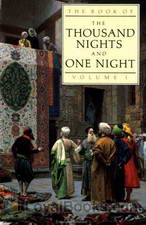 The Book of A Thousand Nights and a Night
The Book of A Thousand Nights and a Night
This is a collection of stories collected over thousands of years by various authors, translators and scholars. The are an amalgam of mythology and folk tales from the Indian sub-continent, Persia, and Arabia. No original manuscript has ever been found for the collection, but several versions date the collection’s genesis to somewhere between AD 800-900. The stories are wound together under the device of a long series of cliff-hangers told by Shahrazad to her husband Shahryar, to prevent him from executing her... | |
 English as She is Wrote
English as She is Wrote
"...Showing Curious ways in which the English Language may be made to convey Ideas or obscure them." A collection of unintentionally humorous uses of the English language. Sections of the work: How she is wrote by the Inaccurate, By Advertisers and on Sign-boards, For Epitaphs, By Correspondents, By the Effusive, How she can be oddly wrote, and By the Untutored. | |
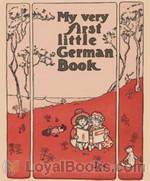 My Very First Little German Book
My Very First Little German Book
An adorable picture book with 29 little lessons in German. Learn many simple and useful phrases, such as "How big the sea is!" and "Have you ever been to the farm?" The English parts of the book are read by Kara, and the German parts by Elli. | |
 Select Epigrams from the Greek Anthology
Select Epigrams from the Greek Anthology
| |
By: Anton Chekhov (1860-1904) | |
|---|---|
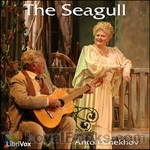 The Seagull
The Seagull
The Seagull (Russian: Чайка, Chayka) is the first of what are generally considered to be the four major plays by the Russian dramatist Anton Chekhov. The play was written in 1895 and first produced in 1896. It dramatises the romantic and artistic conflicts between four characters: the ingenue Nina, the fading leading lady Irina Arkadina, her son the experimental playwright Konstantin Treplyov, and the famous middlebrow story writer Trigorin. | |
 The Cherry Orchard
The Cherry Orchard
The Cherry Orchard is Russian playwright Anton Chekhov's last play. It premiered at the Moscow Art Theatre 17 January 1904 in a production directed by Constantin Stanislavski. Chekhov intended this play as a comedy and it does contain some elements of farce; however, Stanislavski insisted on directing the play as a tragedy. Since this initial production, directors have had to contend with the dual nature of this play. The play concerns an aristocratic Russian woman and her family as they return to the family's estate (which includes a large and well-known cherry orchard) just before it is auctioned to pay the mortgage... | |
 Uncle Vanya
Uncle Vanya
Uncle Vanya (subtitled “Scenes From Country Life”) is a tragicomedy by Anton Chekhov. It is set on the failing country estate of a retired professor, Serebrakoff, who returns after a long absence with his beautiful young wife, and throws the household into confusion. Rivalry, unrequited love, illicit romance, and attempted suicide are the result, punctuated throughout by Chekhov’s sad, wistful humor. | |
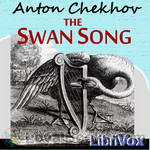 Swan Song
Swan Song
In 'The Swan Song' an aging actor reminisces about his life and the parts he's played. The piece takes a tragic look at ambition and the sacrifices that must be made in order to succeed. Chekhov’s ability to capture and explore human nature and experience is showcased here. | |
 The Wife, and other stories
The Wife, and other stories
| |
 The Witch and other stories
The Witch and other stories
| |
 The Schoolmistress, and other stories
The Schoolmistress, and other stories
| |
 House With The Mezzanine And Other Stories
House With The Mezzanine And Other Stories
Six short stories and a novella by the Russian master. (david wales) | |
 Ivanov
Ivanov
Nicolai (anglicised Nicholas in this translation) Ivanov, a middle-aged public servant, is unhappy. His wife Anna, disinherited by her family after converting from Judaism, is dying of tuberculosis. He is deeply in debt. And his best friend’s daughter is infatuated with him. Comedy and tragedy ensue in truly Chekhovian fashion. An example of the young Chekhov’s maturing style, Ivanov is an early harbinger of themes that would recur throughout his work. | |
 Schoolmaster and Other Stories
Schoolmaster and Other Stories
Anton Chekhov, perhaps better known as a world famous classical playwright for works such as "Uncle Vanya" and "The Cherry Orchard" was also a prolific short story writer. "The Schoolmaster and Other Stories" is one of several of his collections. It's a compilation of 30 short stories. Some bizarre, some comical but all very interesting. | |
 The Slanderer 1901
The Slanderer 1901
| |
By: Aristophanes (446BC - 385BC) | |
|---|---|
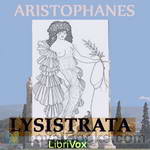 Lysistrata
Lysistrata
Lysistrata read by the Classics Drama Company at DePaul. The Classics Drama Company at DePaul is a new gathering of Thespians and Classicists dedicated to performing and understanding ancient literature. If you live in Chicago and attend DePaul University, we welcome new additions to our group. Contact Dr. Kirk Shellko (kshellko@depaul.edu), if interested.First performed in classical Athens c. 411 B.C.E., Aristophanes’ Lysistrata is the original battle of the sexes. One woman, Lysistrata, brings together the women of all Greece, exhorting them to withhold sexual contact from all men in order that they negotiate a treaty... | |
By: Aristotle (384 BCE-322 BCE) | |
|---|---|
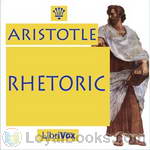 Rhetoric
Rhetoric
The Rhetoric was developed by Aristotle during two periods when he was in Athens, the first between 367 to 347 BCE (when he was seconded to Plato in the Academy), and the second between 335 to 322 BCE (when he was running his own school, the Lyceum). The Rhetoric consists of three books. Book I offers a general overview, presenting the purposes of rhetoric and a working definition; it also offers a detailed discussion of the major contexts and types of rhetoric. Book II discusses in detail the three means of persuasion that an orator must rely on: those grounded in credibility (ethos), in the emotions and psychology of the audience (pathos), and in patterns of reasoning (logos)... | |
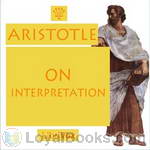 On Interpretation
On Interpretation
Aristotle's On Interpretation (Greek Peri Hermeneias) or De Interpretatione (the Latin title) is the second of Aristotle's six texts on logic which are collectively known as the Organon. On Interpretation is one of the earliest surviving philosophical works in the Western tradition to deal with the relationship between language and logic in a comprehensive, explicit, and formal way. The work begins by analyzing simple categoric propositions, and draws a series of basic conclusions on the routine... | |